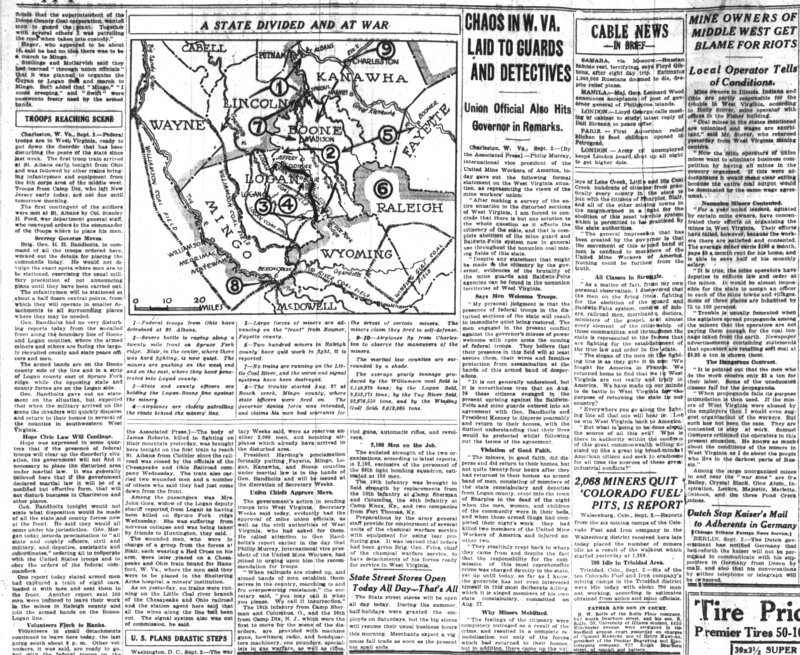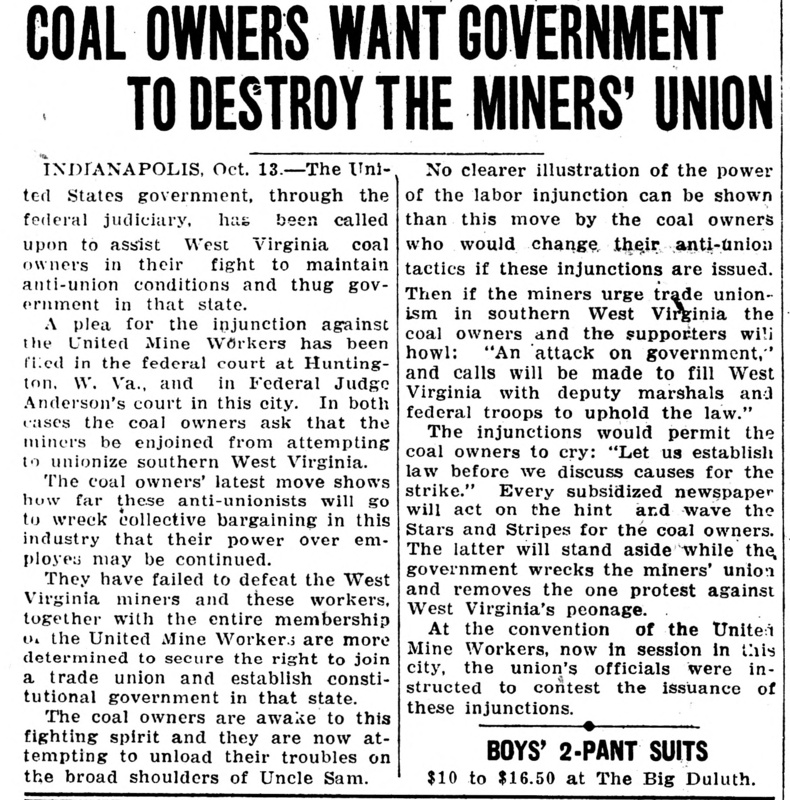The Government's Role in the Coverup
Town Secrecy
The state government and coal companies made extreme efforts in maintaining a ‘pro-industry’ narrative in the public eye (Keeney, 2018). As a result of this, the Battle of Blair Mountain and other West Virginia mine wars have been underrepresented in history, education, and media. Coal companies owned and controlled entire towns where miners and their families resided. Miners were signed into secrecy regarding the working conditions in the mines. If miners spoke up, stopped working, or protested, they were forced to live in tents and often arrested if they were associated with labor uprisings.
Newspapers or Propaganda?
When newspapers wrote about the local government or coal companies in a negative light, they were taken down and, in some cases, publishers were arrested. Some newspapers were banned as ‘propaganda’ for defending the miners or writing them in any way other than criminals. For instance, miners could be arrested for reading banned newspapers such as The West Virginia Federalist and The United Mine Workers Journal (Shogan, 2006). These conflicts between the governor and newspapers took place years before, during, and after the Battle of Blair Mountain. For example, in 1913, Governor Hatfield tried to cover up the wildcat strikes “by shutting down two local newspapers and arresting their editors because their publications had covered the brutality of the mine guard system and urged the miners to continue the strike” (Keeney, 2018). The sheriff’s department aided Governor Hatfield in this attempt by breaking into a Huntington newspaper building and destroying all of the printing equipment.
History & Education
According to Keeney, “The state government's unwillingness to allow the Mine Wars to be a part of the historic narrative became most evident in 1939 and 1940 when a controversy arose over West Virginia: A Guide to the Mountain State” (2018). In 1940, John D. Newsome met with Governor Holt to discuss the inclusion of the Hawk’s Nest Incident, Mother Jones, and the Battle of Blair Mountain in the state history books and Encyclopedia. Newsome summed up Governor Holt’s opinions of the mine wars in a memorandum:
“The manuscript contained three (3) references to the famous Miners' March. All these references were considered in bad taste. Here again we were making heroes out of scalawags. At best the Miners' March, if mentioned at all, was not worth more than two or three lines. The part played by Mother Jones in organizing the workers was given far too much emphasis. Merely because a page, perhaps, was devoted to her activities, we had "glorified" her. Why not just say that "Mother Jones was in West Virginia." In other words, the Governor informed me, the manuscript was propaganda from start to finish. I quote his own words. The whole tone of the book was objectionable. It lacked style, it lacked quality, it dealt with the sordid side of life instead of doing justice to the progressive spirit of the people of West Virginia” (Keeney, 2018).
The efforts of erasing mine wars from history and maintaining a pro-industry narrative continued for many years, which in turn, further silenced the stories and experiences of miners.

